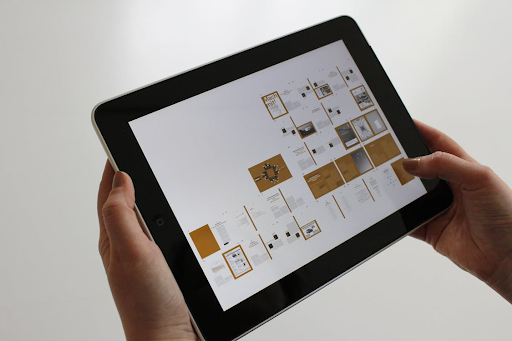For years, laptops have been the default choice for students. They’re powerful, reliable, and versatile. But in recent times, tablets have begun to take over as the preferred study companion. Lighter, more affordable, and increasingly capable, tablets now provide everything students need for academics while doubling up as versatile entertainment hubs. From study tools and eBooks to note-taking apps and online gaming, tablets are proving that they can handle both productivity and play.
Portability That Fits Student Life
One of the biggest advantages tablets have over laptops is portability. Students are constantly on the move, from classrooms to libraries, cafés, and dorm rooms. Tablets fit easily into bags, weigh much less than most laptops, and are quick to power on. This mobility makes them ideal for students who don’t want to carry heavy equipment all day. When you can take a tablet everywhere, it naturally becomes the go-to device for daily tasks.
Study Tools That Simplify Learning
Tablets are equipped with apps designed specifically for learning. From note-taking platforms like OneNote and Notability to flashcard apps and citation managers, tablets streamline academic work. Touchscreens and styluses add an extra layer of convenience, letting students handwrite notes directly on the screen or annotate PDFs. For subjects that require diagrams, sketches, or formulas, tablets are particularly effective. Unlike laptops, which rely on keyboards, tablets allow more natural interaction with study materials.
EBooks and Digital Resources
Textbooks are notoriously heavy and expensive. Tablets provide an alternative by consolidating entire libraries into a single device. EBooks, online journals, and research materials can all be stored digitally, saving space and money. Adjustable fonts, backlit displays, and note-making features make reading more comfortable and interactive than physical copies. For students juggling multiple courses, having everything accessible on one slim device is a significant advantage.
Flexibility for Classes and Beyond
Many students are enrolled in hybrid or online learning programs, and tablets are perfectly suited to this style of education. Video conferencing apps like Zoom or Microsoft Teams run smoothly on tablets, while split-screen features allow note-taking during lectures. Tablets also connect easily to accessories like keyboards, turning them into mini-laptops when needed. This flexibility means students can use them for everything from casual browsing to serious research, without switching between multiple devices.
The Entertainment Side of Tablets
Of course, student life isn’t all about studying. Tablets also shine as entertainment devices. With crisp displays and strong sound, they’re perfect for streaming movies, scrolling through social media, or playing games. Their size makes them more immersive than smartphones but still more portable than laptops. After a long day of classes, many students use tablets to relax with casual gaming or explore online platforms. For those of legal age, interactive options such as live roulette add a fun and engaging dimension to their downtime. The ability to switch from studying to entertainment within seconds is part of what makes tablets so appealing.
Budget-Friendly Options
Another reason tablets are gaining ground is affordability. While high-end laptops can be costly, tablets are available at a wide range of price points. Students can choose models that fit their budget without sacrificing essential features. Paired with accessories like detachable keyboards or styluses, even budget tablets can match many laptop functions at a lower cost. For students trying to stretch their finances, this balance of price and performance is hard to ignore.
Long Battery Life
Battery performance is another area where tablets often outperform laptops. Many modern tablets can last 10 to 12 hours on a single charge, easily covering a full day of classes, study sessions, and entertainment. This endurance is especially valuable for students who move between lecture halls and libraries with limited access to outlets. The confidence of knowing your device will last all day makes tablets more convenient for busy academic schedules.
A Device That Grows With You
Tablets are not limited to academic use. They also support creativity, with apps for drawing, music, and video editing. Many students use them to pursue hobbies, launch side projects, or build portfolios alongside their studies. This versatility ensures that tablets remain useful beyond university, supporting both personal and professional growth. Whether it’s preparing presentations, editing videos, or enjoying entertainment, tablets adapt to changing needs over time.
Social and Collaborative Connection
Staying connected is an essential part of student life, and tablets make it easy. They’re great for group chats, collaborative study apps, and social media. Students can work together on projects or simply keep in touch with friends and family. Larger screens make video calls more engaging, while strong Wi-Fi capabilities ensure stable connections. Tablets not only support academic collaboration but also enhance social life, which is equally important during student years.
Final Thoughts
Students are choosing tablets over laptops because they combine academic strength with entertainment versatility. They’re portable, affordable, and designed to handle both study tools and digital leisure. From taking notes in class and storing eBooks to streaming movies and playing casual games, tablets fit seamlessly into modern student life. For those who enjoy gaming and interactive platforms, experiences like live roulette further highlight the flexibility of tablets as all-in-one devices. More than just study companions, tablets are becoming lifestyle tools that balance learning, fun, and connection in one sleek package.
